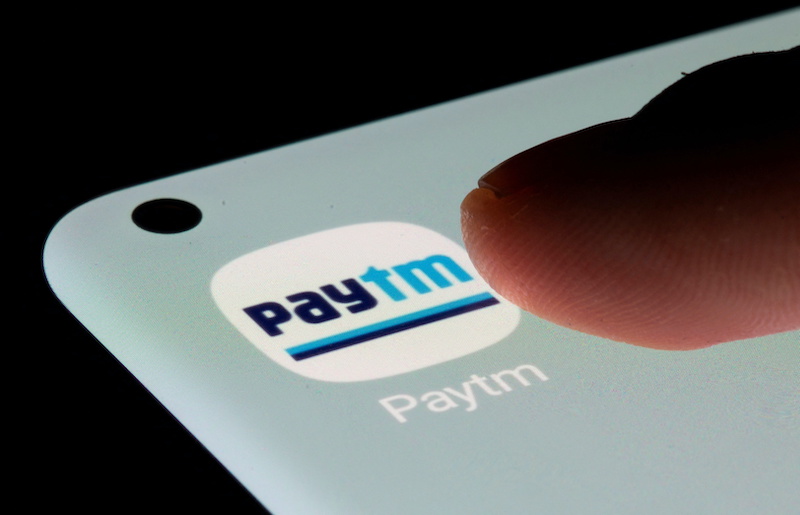Investment in Indian startups has slipped this year after a series of over-the-top valuations and failed promises.
In January and February, India’s startups raised about $900 million – a pace that signals another slow year after a six-year low of just $8 billion in 2023, Venture Intelligence data shows.
That’s a far cry from the record $36 billion raised in 2021 or even the $24 billion in 2022. In contrast, India’s stock market – spurred on by 8%-plus economic growth – has surged 19% since the beginning of last year, hitting a record high this month.
Investors, once eager to pump in billions of dollars in promising Indian tech ventures, are now going slow and cutting smaller cheques after being burnt by some ignominious falls from grace for once-marquee young firms or market debutants, such as digital payments company Paytm.
Also on AF: China Relaxes Data Export Rules Amid Foreign Firms’ Concern
Karthik Reddy, managing partner at India’s Blume Ventures, which has invested in hundreds of early-stage startups, said his firm plans to do about eight new deals this year compared with 12 last year.
It will invest bigger sums in firms it is confident about instead of spreading funds across more companies.
“When your existing portfolio is not showing gains, it is hard to be excited to do more,” he told Reuters.
Investors looking at Indian startups are much more focused on potential profitability, less enamoured with tech companies and more interested in stable brick-and-mortar businesses, according to Reuters interviews with six executives at foreign and domestic investment firms as well as two CEOs at startups.
The two-thirds drop in funding last year for Indian startups was also much steeper than the 36% drop for US startups and the 42% drop for Chinese startups, CBInsights data shows.
Significantly, Blume’s next fund is set to be either equal in size or smaller than its last one which raised $290 million – an unusual development for a top Indian venture capital firm.
India’s 10 biggest venture capital firms have over the past decade always embarked on bigger funds than their last one, a Reuters analysis shows. “In this environment. I don’t think we can make big returns with more money,” Reddy said.
Ola Cabs, Paytm, Byju Flops
Less startup funding can have a broader economic impact. In the last eight years, startups generated 20-25% of India’s new jobs and 10-15% of its economic growth, an Indian trade body and McKinsey said in a report this month.
Much of the blame for investors’ relative reticence towards startups – described by Prime Minister Narendra Modi as the “backbone” of the country – can be laid at the sharp turnarounds in fortune for Paytm, online educational firm Byju and Uber-rival Ola Cabs.
Paytm’s shares have plunged 80% since its 2021 listing. It was criticised at the time for valuing itself too high and is now in crisis after the central bank ordered its banking arm wound down for persistent non-compliance.
Byju, once the poster child for India’s startup ecosystem, was valued at $22 billion in 2022 but now values itself at around $200 million. It’s at loggerheads with investors over a rights issue and cannot pay its staff.
In some cases, valuations have plunged even without a major crisis. Vanguard, an investor in Ola Cabs, slashed the ride-hailing firm’s valuation to $1.9 billion, a drop of 74% from 2021, although it did not give a reason.
Ashish Sharma, chief executive at Temasek-backed InnoVen Capital which has invested $1.5 billion in Asian startups, said it was clear with hindsight that too much capital was poured into some sectors, leading to sharp increases in valuations.
“Some companies got lucky … [but] getting lucky cannot be a business model.”
Softbank’s $300m India Plan
India’s Nexus Venture Partners, which manages $2 billion, is “broad-basing” its bets beyond typical tech startups to capture a larger portion of the economy and because traditional sectors are less risky, according to a source with direct knowledge of the matter who declined to be identified.
Nexus, which has since December backed a sportswear manufacturer and a coffee chain, did not respond to a request for comment.
In one brighter sign, Japan’s SoftBank is considering deploying up to $300 million in India this year, according to a source briefed on its plans.
That comes after not signing a single new cheque in India in two years – a sharper pullback than in other regions by the tech investment behemoth.
“Most [Indian] startups were too richly valued and SoftBank could not justify those valuations,” said the source who was not authorised to speak to media and declined to be identified.
SoftBank, which invested $11 billion in Indian startups between 2014 and 2021, did not respond to Reuters requests for comment.
- Reuters with additional editing by Sean O’Meara
Read more:
India’s Paytm Bleeds Amid Financial Crime Probe in Banking Arm
India Shares See Longest Weekly Winning Streak Since 2018
Paytm Stocks Dive After RBI Pulls Shutters Down on Its Bank
Edtech Firm Byju’s Raises $800m in New Round, Founder Chips in
India’s Paytm Shares Slump 10% as SoftBank Cuts Stake
























